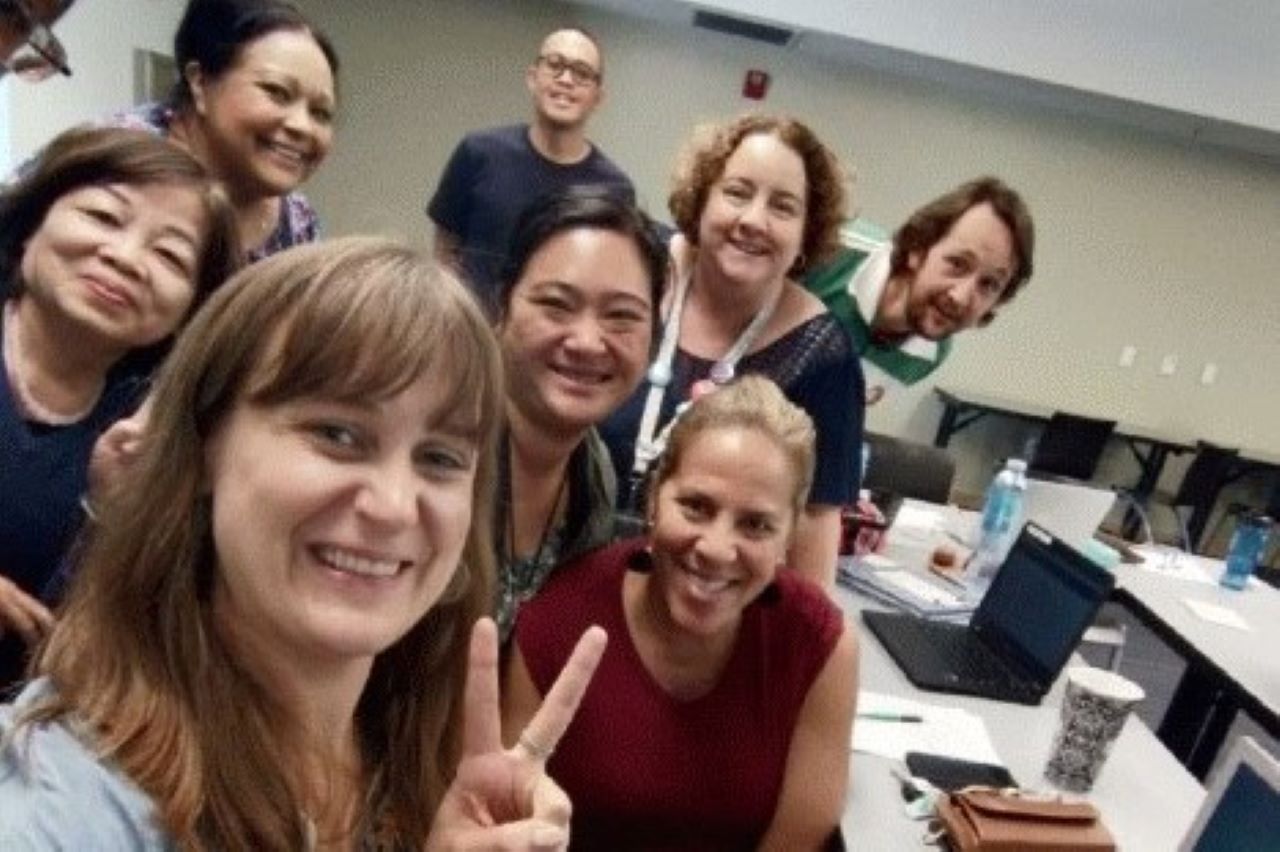
Pathfinder is a series of blogs about intrepid library staff who are leading interesting programs that you may not yet know about.
One of the leaders in providing information about Learning Circles is Peer to Peer University. P2PU is a non-profit organization seeking to provide alternatives to higher education. According to P2PU, "Learning Circles are free study groups for people who want to take online classes together and in-person."
Librarian Marsha Malcolm staunchly advocates for Learning Circles, which started as a program for adults, but has instead morphed into a program for the community at the San Jose Public Library. The only requirement is the willingness to learn. Marsha, who has participated in a Distance Learning Masters Program, seems to be perfectly attuned to this program, which is particularly adaptable to virtual spaces. Marsha wrote an engaging blog about her experiences. She is an indefatigable proponent for distance learning, Learning Circles, and a great resource at the library!
Distance learning is a crucial component to learning during the current shelter in place for many school students. It serves as the only social interaction during the pandemic. People find solace in social interactions. A way to find social connections is through taking classes. But how can you take classes in a pandemic?
"A Model for Programming and a Complement to Successful Online Learning"
In her work as a librarian, customers often ask Marsha for specific classes about specific skills. These customers seek a “guided experience” outside of books that may not otherwise be available to them. Librarians can provide Learning Circles to those customers who seek guided experiences.
Learning Circles do not have subject matter experts who teach the course. Instead, librarians like Marsha “find a good course, connect the content to the learners, and work through the course with their customers.”
Marsha does not call herself a “teacher” or a “subject matter expert." She considers her role to be a facilitator. She provides procedural support like:
- inspiring discussion
- structuring the sessions
- keeping time
- helping to forge connections between members of the group
Potential for a "Learning Community"
The sum of your learning depends upon what you invest in your learning. If you are interested in joining a Learning Circle, check out this section in P2PU.
Marsha believes that as a facilitator, she “unites people with common learning goals and helps to achieve those goals by providing a learning community.”
Here are some of the many benefits that you will find as a student in a Learning Circle:
- social outlet
- support group
- accountability to others in the Learning Circle or to the work
- set schedule
- peers who can help you
Marsha recounted a story about a customer who had been out of school for some time. This customer joined a new circle because the customer liked the experience in her first circle. In fact, the customer did not care what the Learning Circle was about! She enjoyed the experience of learning with others, the thrill of finishing the course and meeting her goal.
Running Your Own Learning Circle
Do you feel like you might want to start one yourself? If you are interested, check out P2PU's Facilitator section. In this tutorial, you will receive an orientation, learn about course creation and course topics, promotion and outreach, facilitating, and evaluating your course.
Because many people feel isolated during the shelter in place, Marsha recommends emphasizing the social aspect of Learning Circles in your introductory session, as follows:
- Prior to your first session, make sure that you familiarize yourself with your meeting app, i.e., Zoom.
- When you start each session, include ice breakers, discuss questions about the material, or discuss questions about how fellow students felt about the material.
- Discussing goal-setting should also occur in the introductory session.
- Be aware that your fellow students may feel awkward in these meetings. Mention that it is acceptable to communicate via chat.
- Start with an introduction to the subject. Discuss.
- Conclude by assigning the work for the next class session and reminding students about when the next class meeting occurs.
To learn more about Learning Circles, search for “learning circles” in Articles – In Depth Search and check out P2PU for more information.
If you have any questions about Learning Circles, please comment below!



Add a comment to: Pathfinder Marsha Malcolm: Learning Circles for You and Me!